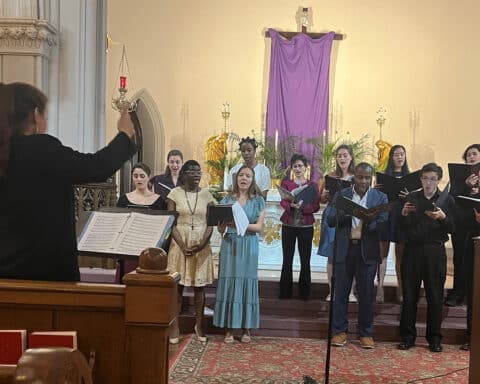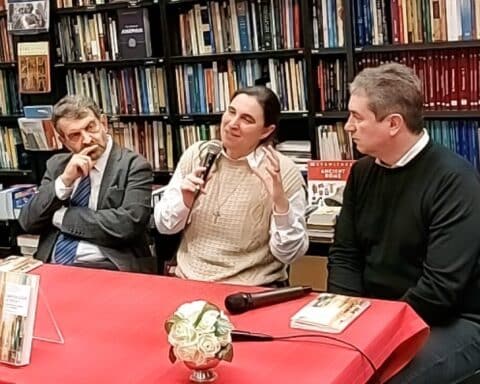
— Paul VanHoudt, Erie, Colorado
Answer: The context of the verses you cite is important. Consider first the verses leading up to Verse 8: “After this, Jesus went around in Galilee. … When the Jewish festival of Tabernacles was near, Jesus’ brothers said to him, ‘Leave Galilee and go to Judea, so that your disciples there may see the works you do. No one who wants to become a public figure acts in secret. Since you are doing these things, show yourself to the world'” (Jn 7:1-4).
Thus, we see that, contextually, his brethren are tempting him to vainglory and are likely themselves beset with vainglory. They want to be seen with a famous and powerful man. They want Jesus to make a glorious entry, and they want to be seen with him.
But this feast (the feast of Booths) is not the time for his triumphal entry. Passover will be that time. So Jesus says, “‘My time is not yet here; for you any time will do.’ After he had said this, he stayed in Galilee” (Jn 7:8-9).
Thus, Jesus excludes going up with them for a triumphal entry. Then, as John reports it, he does go, but his going up is a different sort than they sought: “However, after his brothers had left for the festival, he went also, not publicly, but in secret” (Jn 7:10).
The Fathers of the Church (St. John Chrysostom, for example) interpret the line “I go not up to this feast” as meaning: “I do not go up to this feast with you, now, on your terms.” By the Passover, his time to suffer and be glorified will have come to pass. But not now, at least not on their terms. Thus, he enters later, and on his terms.
Those who would consider the statement “I go not up to the feast” as a lie must overcome not only this interpretation but also another possibility, that the Lord simply changed his mind. He speaks in the present tense — “I go not” — not the future tense — “I will not go.” This construction permits a future change in course of action without the current expression being rendered a lie.
Intercessory prayer
Question: Why does intercessory prayer matter? God already knows everything that we need, and he is not the sort to change his mind.
— Name withheld, Skokie, Illinois
Answer: While God knows what we need, it would seem he wants to engage us in a prayerful conversation. And part of that conversation is for us to become aware of what we need and to desire what God wants to give in the way he wants to give it.
Thus God wants (not needs) us to ask.
It is also clear that God does not change his mind. Rather, since he lives outside of our time and in the fullness of time, he has always known what we would ask and set his providential answer based on that.
In this sense it is literally true to say that God answers prayers sooner than right now and faster than immediately. For in fact, in his eternal state of now, he has always known our requests and always had them answered.
This all takes place long before we ever ask. But our asking is still the key that unlocks God’s reply. It is just that he has always known what we would ask, and when, and already provided.
Msgr. Charles Pope is the pastor of Holy Comforter-St. Cyprian in Washington, D.C., and writes for the Archdiocese of Washington, D.C., blog at blog.adw.org. Send questions to msgrpope@osv.com.





